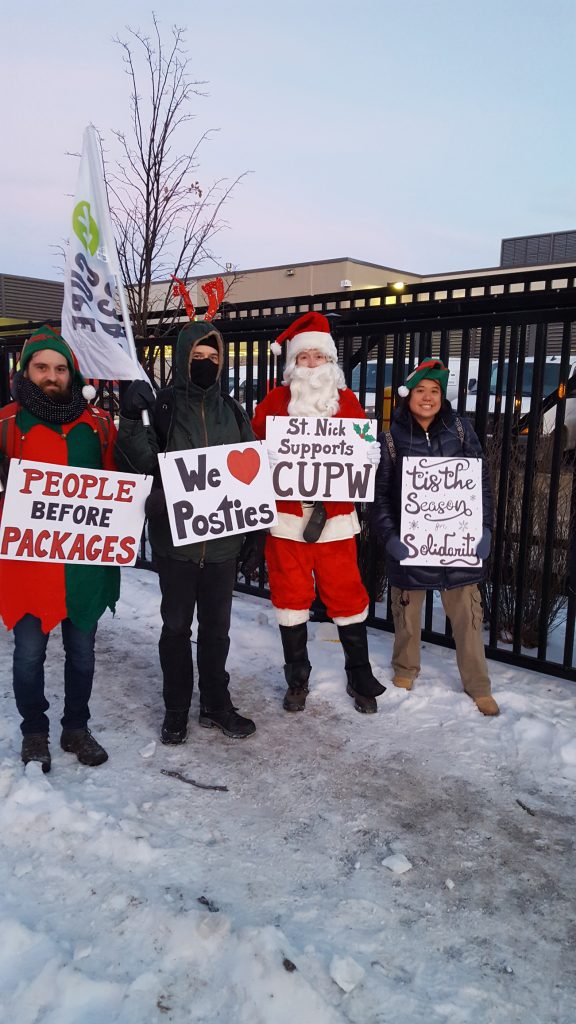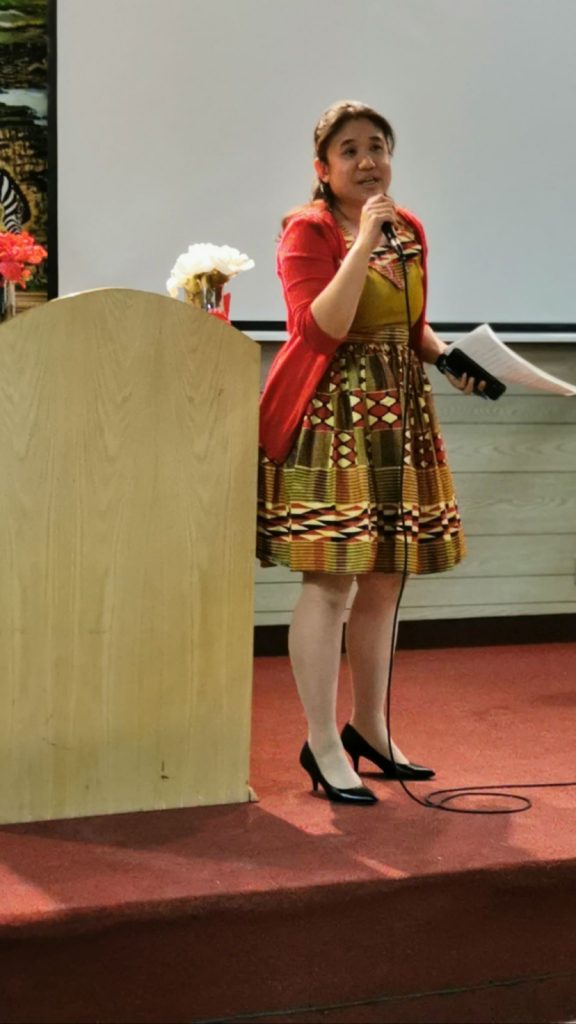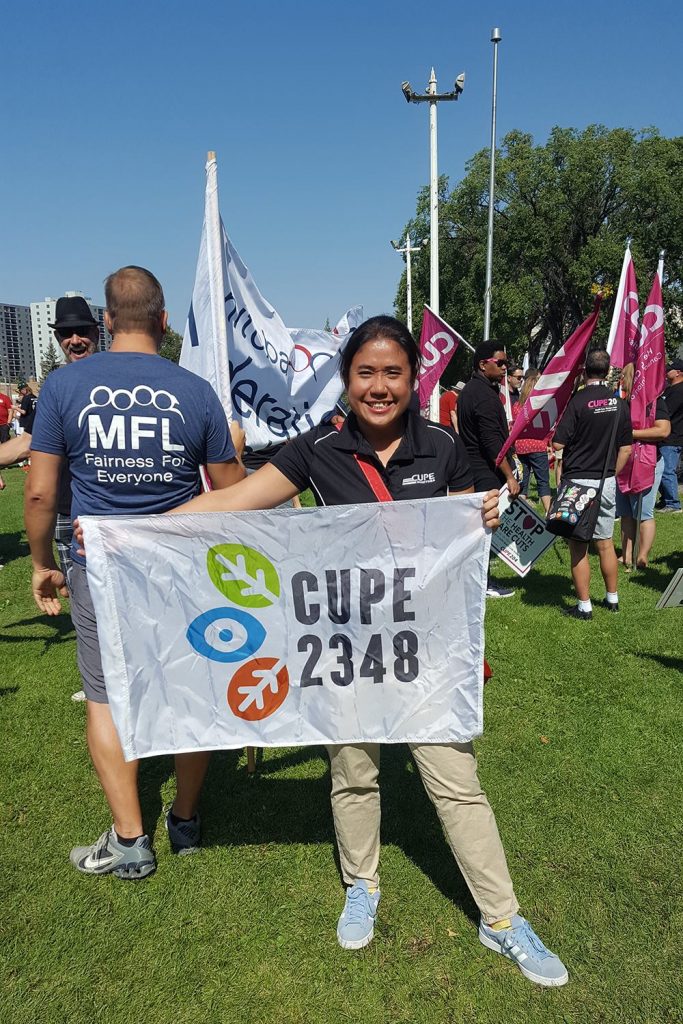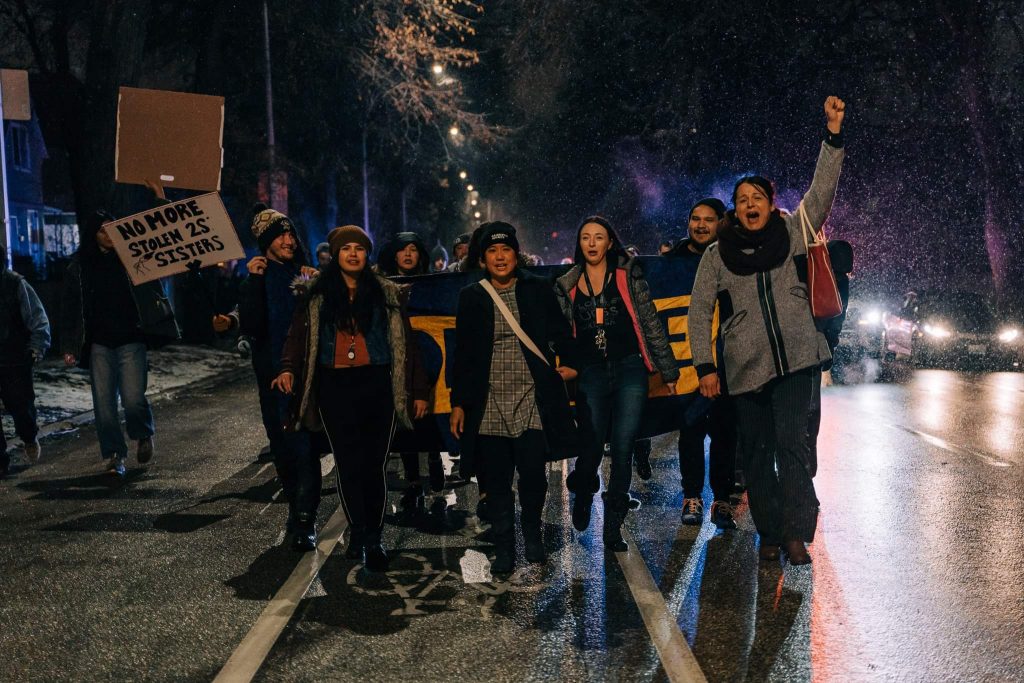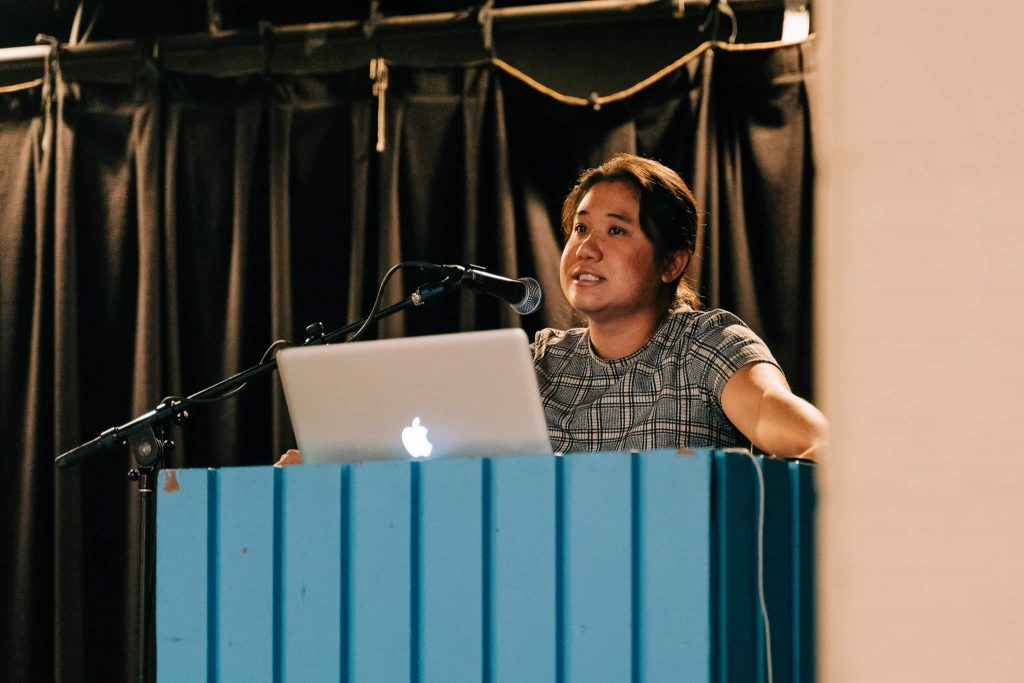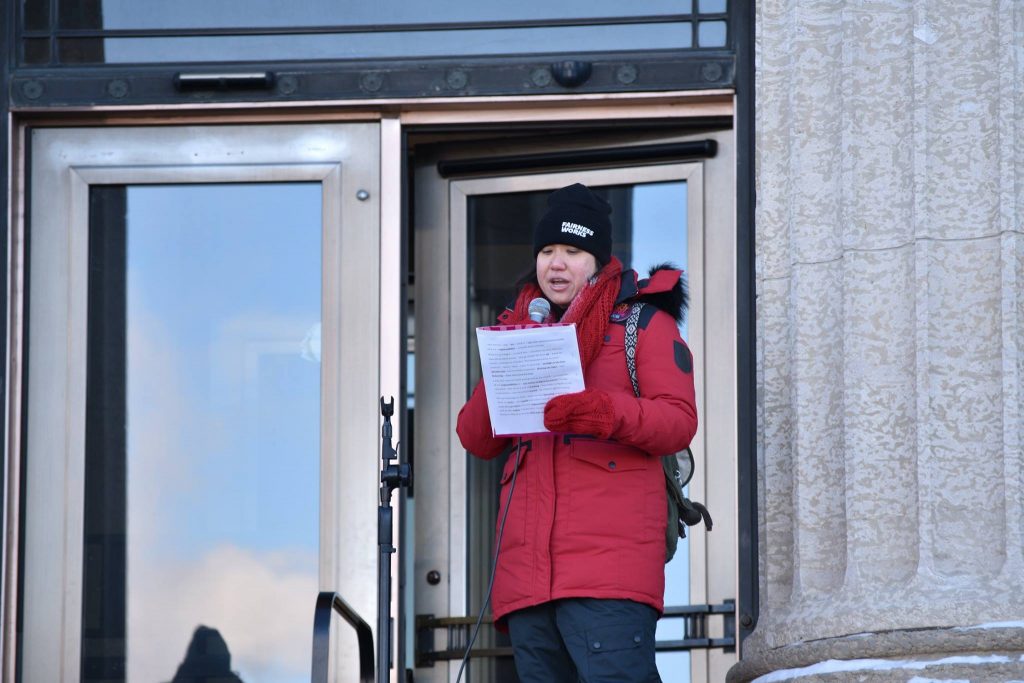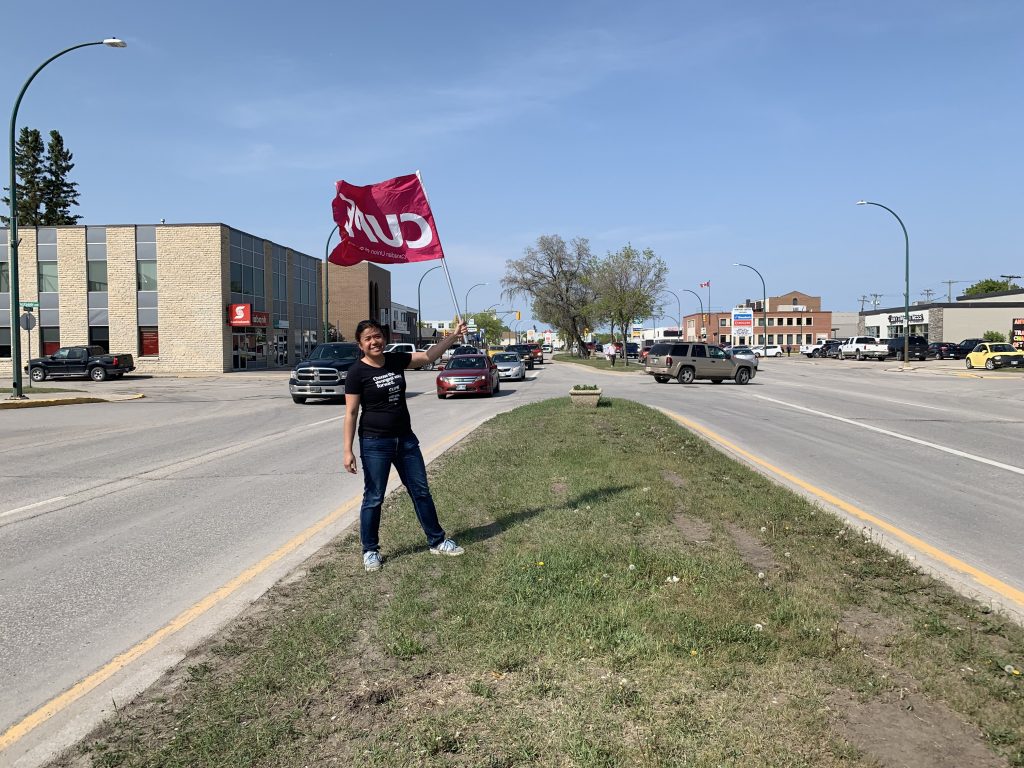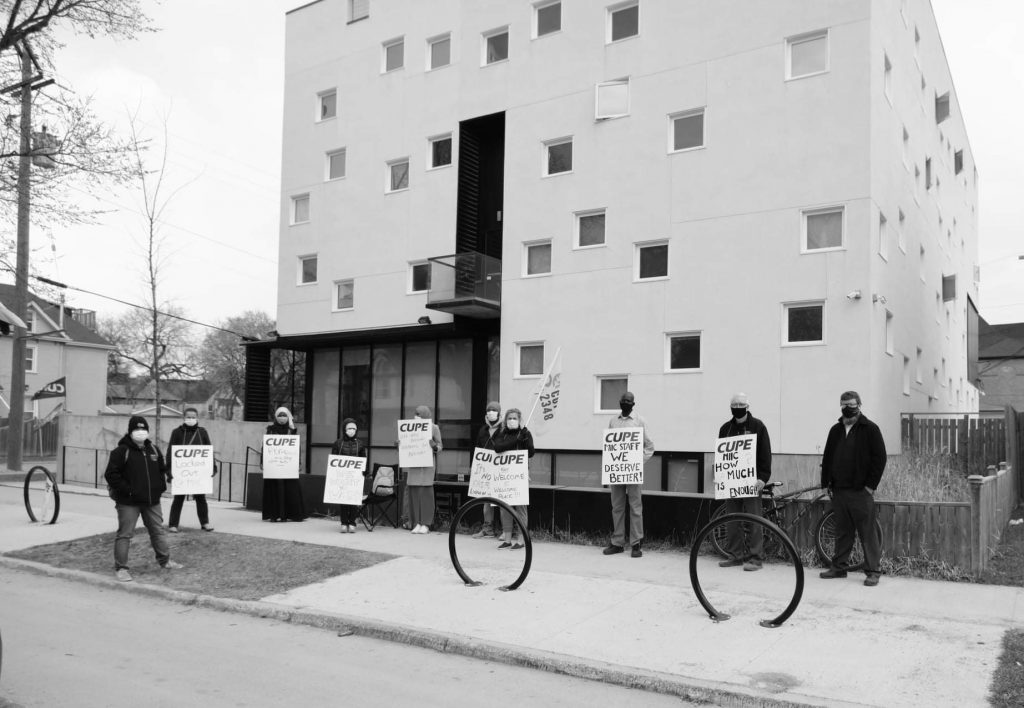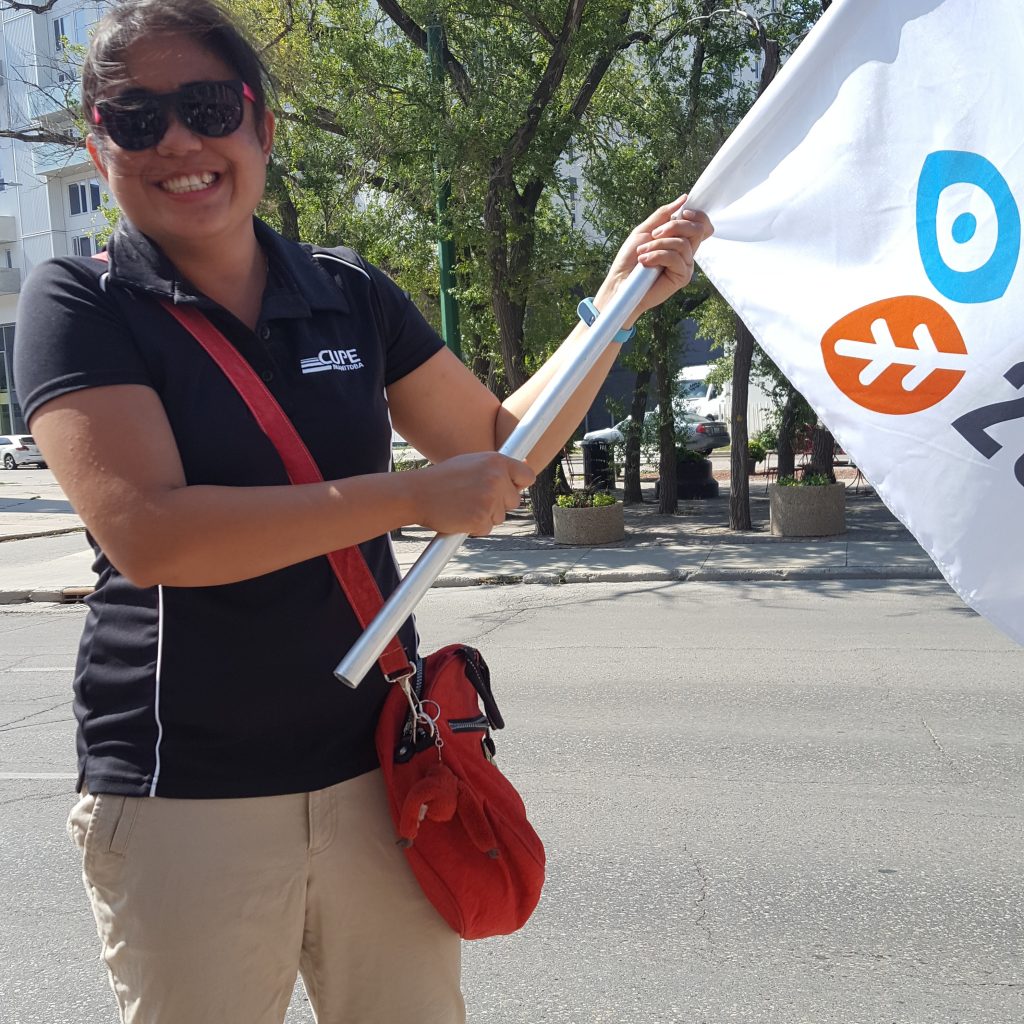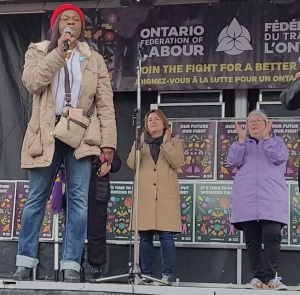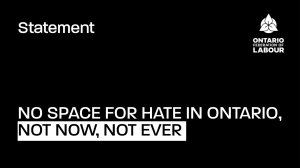何伟仪:我不会美化组织工会运动
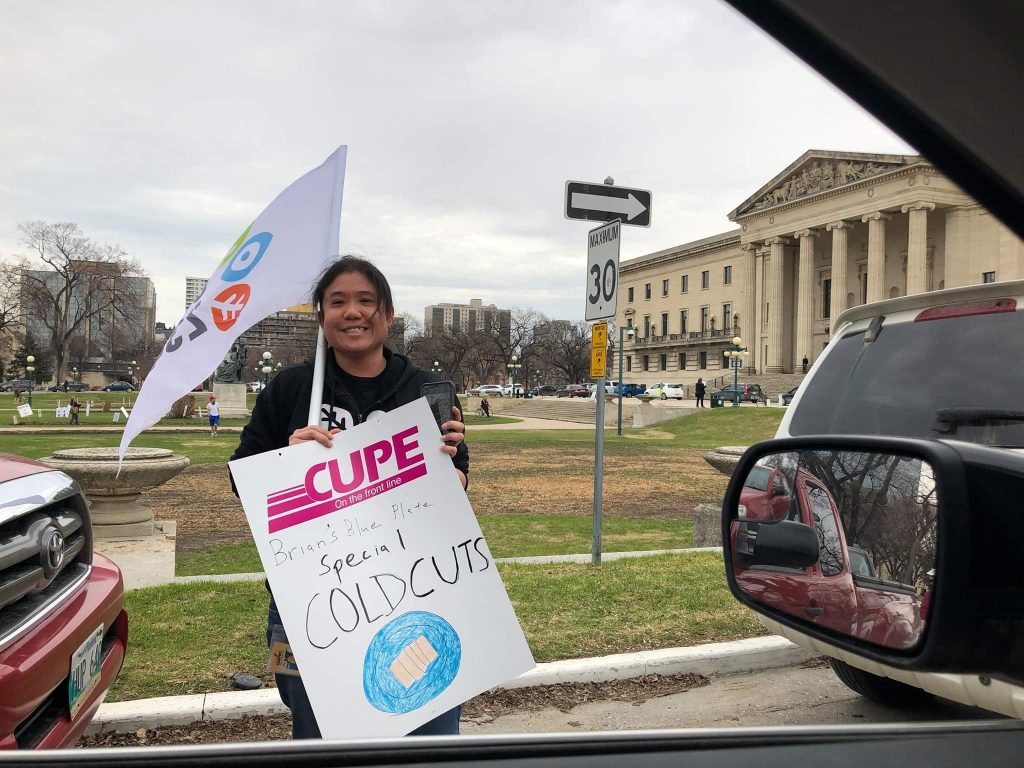
告诉我们一些关于您自己的信息,你是谁,您的日常工作是什么?
我是何伟仪(Vivienne Wei Yee Ho)加拿大公共雇员工会分会2348(CUPE 2348)主席,还是前任曼尼托巴省CUPE人权委员会主席。同时我也在Harvest Manitoba工作。Harvest Manitoba是一个粮食银行网络,可以帮助粮食匮乏的曼尼托巴人获取粮食。
您是如何参加了工运?
我参加工运绝非偶然。我和一群朋友看到了我们工作场所里的不平等。从事相同工作的人的薪资水平差别很大。我们花了整整一年的晚上时间在组织工会工作上。打电话给人们,绘制图表,分配任务,并花费大量时间与我们的同事交谈。我们努力地吸引尽可能多的人签署工会会员卡。许多人担心,如果他们被发现谈论加入工会,他们可能会失业。有些人因为我们想要建立工会而感到气愤。当我们终于有了足够签署工会卡的人数来进行认证时,我们被告知,我省的保守党政府废除工会卡检查制,我们被迫进行强制性投票。这导致进一步的延迟。结果,我们花了一年多的时间才获得认证,又花了一年的时间才获得了我们的第一个集体协议。
我不会给任何想自己的工作场所加入工会的人美化组织工会的。推动成立工会是艰苦的工作,您需要长时间准备和耐心等待。
何伟仪
我不会给任何想自己的工作场所加入工会的人美化组织工会的。推动成立工会是艰苦的工作,您需要长时间准备和耐心等待。要获得成功的组织工会运动,你需要一支有奉献精神的核心团队,他们要坚持不懈并得到您的支持。在工会运动期间,您有时会问自己这是否值得,为什么要花这么长时间,为什么有些人因为我要加入工会而对我愤怒。相信我,这是值得的,最后,工会是建立一个更公平,更平等的工作场所的唯一保证。
您的生活中是否发生过这样的事件,激发您渴望为自己和他人追求正义?(例如罢工,工作中的歧视,不公平待遇等)
几年前,在劳动研究课上了解了格拉西-纳罗斯(Grassy Narrows)的情况。我不知道加拿大有些人无法获得干净的饮用水。加拿大,一个被世界视为人权捍卫者的国家。我对加拿大对待土著人民的方式感到震惊和悲伤。他们继续面对殖民化和不平等。这是错误的,作为加拿大社会的一份子,我们需要为此做些事情。我向工会大会提出了关于土著人民系统性不平等问题的书面决议,并参加了社会正义工作组,寻求平等的委员会,并与志趣相投的组织结成联盟,以促进所有人的公平。
您如何看待工会在争取工作场所正义或社会公义方面的帮助?
通过加强我们的集体协议;确保我们工会成员的权利受到保护,并在需要时有工会代表他们。工会也必须记住,他们有义务保护最弱势工人的权利,这一点也很重要。没有稳定工作的工人,没有永居权的工人和未加入工会的工人,如果我们帮助扶持他们,其他人也会受到感染而加入到扶持他们的队伍当中。
最重要的是,工会应该不仅限于集体谈判协议,而应该要扩大其在组织平等和社会正义方面的渠道。如今,我们每个人享有的许多权益及保护都是来自于女性,LGBT和人权组织的倡导。许多人权立法都是从集体谈判协议中的条款产生的。
华裔加拿大人社区应该了解加拿大工会的哪些其他相关信息?
工会是一种不仅在工作场所而且在社会其他方面挑战不平等现象的一股力量。工会密度较高的国家的经济不平等和社会功能障碍也相对较低。工会人数增加,会减少收入不平等,财富重新分配,最重要的是会减少不同种族和性别之间的工资差距。这些国家的犯罪率也会相对更低,预期寿命更长,识字率更高,社会信任度更高,人口中的整体身心健康状况也更好。
尽管在加拿大不像在美国那样明显,但在最近30年中,不平等现象一直在加剧。持续的立法侵蚀劳工权利,削弱了工会的权力。我们也看到现任安省保守党政府对工人权利的攻击呈上升趋势。加国政府继续出台破坏工会和工人民主的立法和法案。例如,曼尼托巴省最新的法案是16号法案。该法案最糟糕的方面之一是,它将取消曼尼托巴省的有约束力的仲裁规则,该规则规定在罢工和封锁持续两个多月后解决。如果法案通过,工人可能会遭遇无限期罢工或停工。
工会和社会正义运动需要包括华人社区在内的多元化声音。我们华人社区需要走出去,参政议事,让社会听到我们的声音。这是我们可以改变社会的唯一途径。华人社区已经有很多人这样做了,但是我们需要更多,更多的人加入到这个队伍来。
在您看来,是什么原因阻止了华裔加拿大人参加劳工/工会运动?
工会文化,工会结构和工会组织的方式本质上是殖民主义的。对于华人社区以及许多黑人、土著人和有色人种 (BIPOC) 社区来说,这可能是一个障碍。另外,我认为华人社区并不认为自己在劳工运动中有被代表,特别是在国家级别的工会领导层中。在大多数省份中,在劳工运动的内部和外部都缺乏工会与华人社区的联系。
您对有兴趣参加工会运动的人有何建议,应该从何处开始?
参与您当地的工会。确保将您的名字放在工会邮寄名单上,这样您将获得有关本地工会,社会正义事件,集会和抗议活动的所有信息。最好的起点是参加工会成员会议。这就是我开始参加工会的方式。
Vivienne Ho: I am not going to sugarcoat union drive
Tell us a bit about yourself, who are you and what is your day job?
I am Vivienne Wei Yee Ho, I am the President of CUPE 2348 and the previous CUPE Manitoba Human Rights Chair. I am an Intake worker at Harvest Manitoba. Harvest Manitoba is a food bank network that helps Manitoban who are food insecure access food.
How did you find yourself in this field?
I just fell into it. A group of my friends and I saw inequality in our workplace. People who were doing the same job were put on very different pay scales. We spent most of our nights for a year working the union drive; calling people, charting, assigning tasks, and a lot of time talking to our colleagues. We were trying to get as many people as we could to sign the union membership cards. Many people were afraid that they might lose their jobs if they were seen talking about joining a union. There were some that were mad at us for wanting a union. When we finally had enough cards to be certified. We were informed that the conservative government in our province had abolished card checks and we were forced into mandatory voting. This causes a further delay. It took us over a year to become certified and another year to get our first collective agreement.
I am not going to sugarcoat this to anyone who wants to bring in a union to their workplace. Union drive is hard work, you need to be prepared for long hours and wait time.
Vivienne ho
I am not going to sugarcoat this to anyone who wants to bring in a union to their workplace. Union drive is hard work, you need to be prepared for long hours and wait time. To have a successful union drive, you would need a dedicated core team who is persistent and have your back. There will be time during the union drive that you would ask yourself if this worth it, why is this taking so long, why are some people at work are mad at me for wanting a union. Trust me it is worth it, in the end, a union is the only guarantee for a fairer and more equitable workplace.
Was there an incident in your life that sparked a desire for you to pursue justice for yourself and for others? (e.g. strike, discrimination at work, unfair treatment, etc)
Learning about the situation in Grassy Narrow in Labour studies class a few years ago. I did not know that there are people in Canada that did not have access to clean drinking water. Canada, a country that is seen by the world as a champion of Human Rights. I am shocked and saddened by the way indigenous people are treated in Canada; the colonization and the inequality they continue to face. This is wrong and we as a society in Canada need to do something about it. I have written resolutions that I have brought forward to the convention floor about systemic inequality of Indigenous people, I have sat on social justice working groups, equity-seeking committees, and allied with like-minded organizations that promote fairness for all.
How do you see unions helping in the fight for workplace justice or social justice?
By strengthening our collective agreement; making sure that our members’ rights are protected and that they have representation when they need it. It is also important for unions to remember that they have an obligation to protect the rights of the most vulnerable workers; the precarious worker, immigrant workers and workers that are not unionized. If we help lift them up everyone else would be automatically lifted up along with them.
Most importantly, unions need to look beyond the collective bargaining agreement and broaden its approach in organizing for equality and social justice. Many of the Human rights codes and protections that everyone enjoys today were born out of the women, LGBT, and human rights caucus. Many human rights legislations began as an article in a collective bargaining agreement.
What other relevant things should the Chinese-Canadian community know about Canadian unions?
Union is a force that challenges inequality not only in the workplace but everywhere else. Countries that have higher union density have lower economic inequality and social dysfunction. A higher Unions present, reduce income inequality, wealth distribution, most importantly decreasing the racial and gender wage gap. These countries have a lower crime rate, higher life expectancy, higher literacy, and higher level of personal trust, better overall mental and physical health in their population.
Though not as pronounced in Canada as it is in the States, inequality has been on the raise for the last 30 years. Continued legislative erosion of labour rights weakens power of unions. We are also seeing an upward trend in attack on workers’ rights by the current conservative government. This government have continued to introduce legislation and bills that undermine unions and workers’ democracy. The latest in Manitoba is Bill 16. One of the worst aspects of this bill is that it will eliminate the Made-in-Manitoba binding arbitration rules that settle strikes and lockouts after they last more than two months. If it passes, workers can be on strike or lockout indefinitely.
Unions and social justice movements need a diverse voice which includes the Chinese community. Our community needs to get out, get political and be heard. This is the only way that we can be part of the change that we want.Many people in the Chinese community is doing it already, but we need more, much more people.
In your opinion, what has prevented Chinese-Canadians to participate in the labour/union movement?
Union culture, union structure and the way union organize is colonial in nature. This can be a turnoff for the Chinese community as well as many BIPOC communities. Also, I don’t think the Chinese community sees themselves being represented in the labour movement, especially among union leadership on the National level. There is also a lack of union engagement and outreach to the Chinese community within and outside the labour movement in most provinces.
What would you recommend for people who are interested in participating in union actions, where to start?
Get involved in your local union. Make sure that you put your name on the union local mailing list, this way you will get all the information on what going on with your union local, social justice events, rallies, and protests. The best place to start is by attending your general membership meetings. That is how I got my start in the union.
